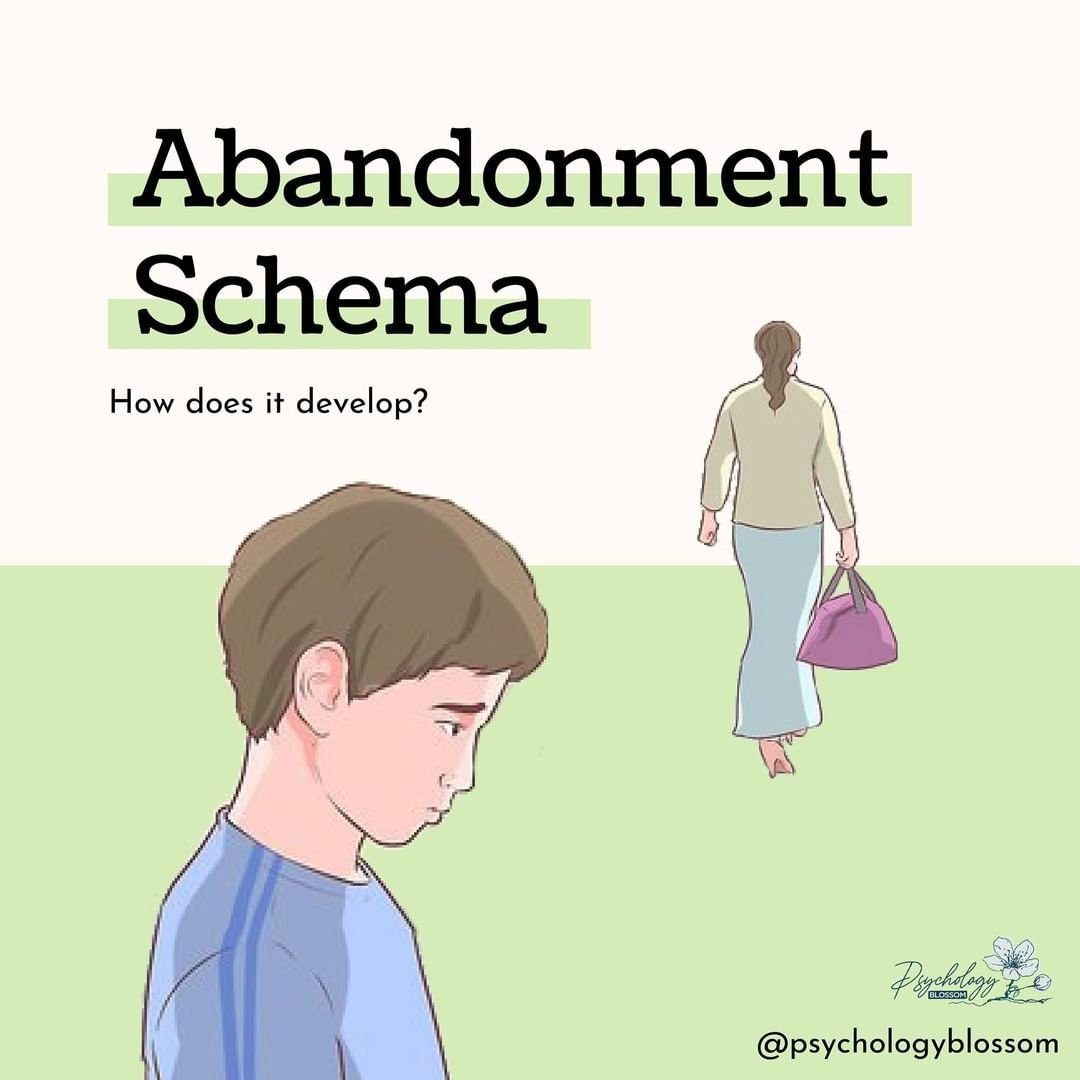Before diving into specific schemas, you might want to read our
introduction to Schema Therapy.
It provides a clear overview of the model and how schemas are understood and worked with in therapy.
Abandonment Schema: Understanding the Fear of Being Left Behind
Have you ever worried that your partner, close friends, or family members might leave you? While occasional worries about separation are normal, persistent and overwhelming fears can point to the presence of the Abandonment Schema.
What Is It?
A schema is a cognitive framework that helps us quickly interpret information and make decisions. The Abandonment Schema is marked by feelings of insecurity and fear of being left alone or rejected. Individuals with this schema often experience emotional instability in relationships, fearing that important people in their lives are unreliable or will eventually walk away.
How Does an Abandonment Schema Develop?
This schema usually develops in early childhood when secure attachment is lacking. Environments with unpredictable care, inconsistent affection, or unstable emotional presence teach a child that relationships cannot be trusted. Instead of learning that love is stable, the child internalizes fear and uncertainty.
Caregivers dealing with mental health struggles, emotional instability, or substance abuse may be unable to provide consistent love. Some children may have experienced neglect or outright abandonment, leaving deep emotional scars. These early experiences lead to the core belief: “People I love will eventually leave me.”
Biological Explanations for Abandonment Schemas
The amygdala, the brain’s center for processing fear, becomes highly sensitive when exposed to early insecurity. Later in life, when individuals encounter partners or friends whose behaviour resembles that of unpredictable caregivers, the amygdala reacts as if danger is imminent. This sets off a “fight or flight” response, creating anxiety, insecurity, jealousy, or even anger and depression.
Do You Think You Might Have This Schema?
If you relate to many of the following thoughts and feelings, the Abandonment Schema may be active in your life:
- Frequent worries about losing loved ones (partners, friends, or children).
- Experiencing anxiety, anger, or jealousy when your partner:
- Spends time with others without you
- Travels for work or leisure
- Returns home later than expected
- Does not reply to messages or calls promptly
- Persistent belief that people are unreliable and will walk away suddenly.
Signs and Symptoms
Emotional and behavioural patterns often seen in individuals with the Abandonment Schema include:
- Clinginess: Constantly wanting to be around loved ones to avoid being alone.
- Possessiveness: Attempting to control others in order to keep them close.
- Seeking reassurance: Frequently asking if the other person cares or intends to stay.
- Jealousy: Intense emotional reactions when loved ones interact with others.
- Anger or depression: Strong emotional responses when experiencing rejection, even minor.
- Hypervigilance: Constantly scanning for signs that a relationship might end.
- Self-sabotage: Ending relationships prematurely to avoid being left first.
How This Schema Impacts Life
Living with an Abandonment Schema can be emotionally exhausting. Relationships may feel unstable, with frequent cycles of closeness and conflict. The schema can lead to:
- Romantic struggles: Clingy or controlling behaviour that strains intimacy.
- Friendship difficulties: Fear of being replaced or excluded can reduce trust and closeness.
- Parenting challenges: Passing down insecurity to children by overprotecting or anxiously clinging.
- Mental health issues: Greater risk of anxiety, depression, and chronic stress.
Managing Abandonment Schemas Through Schema Therapy
Therapy is one of the most effective ways to work through abandonment fears. In Schema Therapy, clients explore early life experiences, understand their patterns, and learn healthier coping strategies. Therapy may help individuals:
- Gain insight into maladaptive coping patterns caused by fear of rejection or abandonment.
- Develop healthier coping methods, such as setting boundaries or tolerating temporary distance without panic.
- Rebuild secure attachment, addressing unmet childhood needs and creating stability in present relationships.
Additional Notes
It is natural to want to hold onto the people we love. However, when fears of abandonment dominate, they may lead to self-destructive behaviours and strained relationships. Understanding that this schema is often rooted in trauma or adverse childhood experiences is the first step toward healing.
The challenge is that this schema often perpetuates itself: by acting on fears (for example, being overly controlling or jealous), individuals may push others away—confirming their belief that abandonment is inevitable. Breaking this cycle requires therapy, patience, and self-compassion.
If you feel caught in the distress of this schema, you may want to consider seeking therapy. Therapy provides a safe, supportive environment where you can learn to regulate emotions, build secure attachments, and create fulfilling, long-lasting relationships.
We recommend This Video to those who want to learn more about the Abandonment Schema and steps toward recovery.
